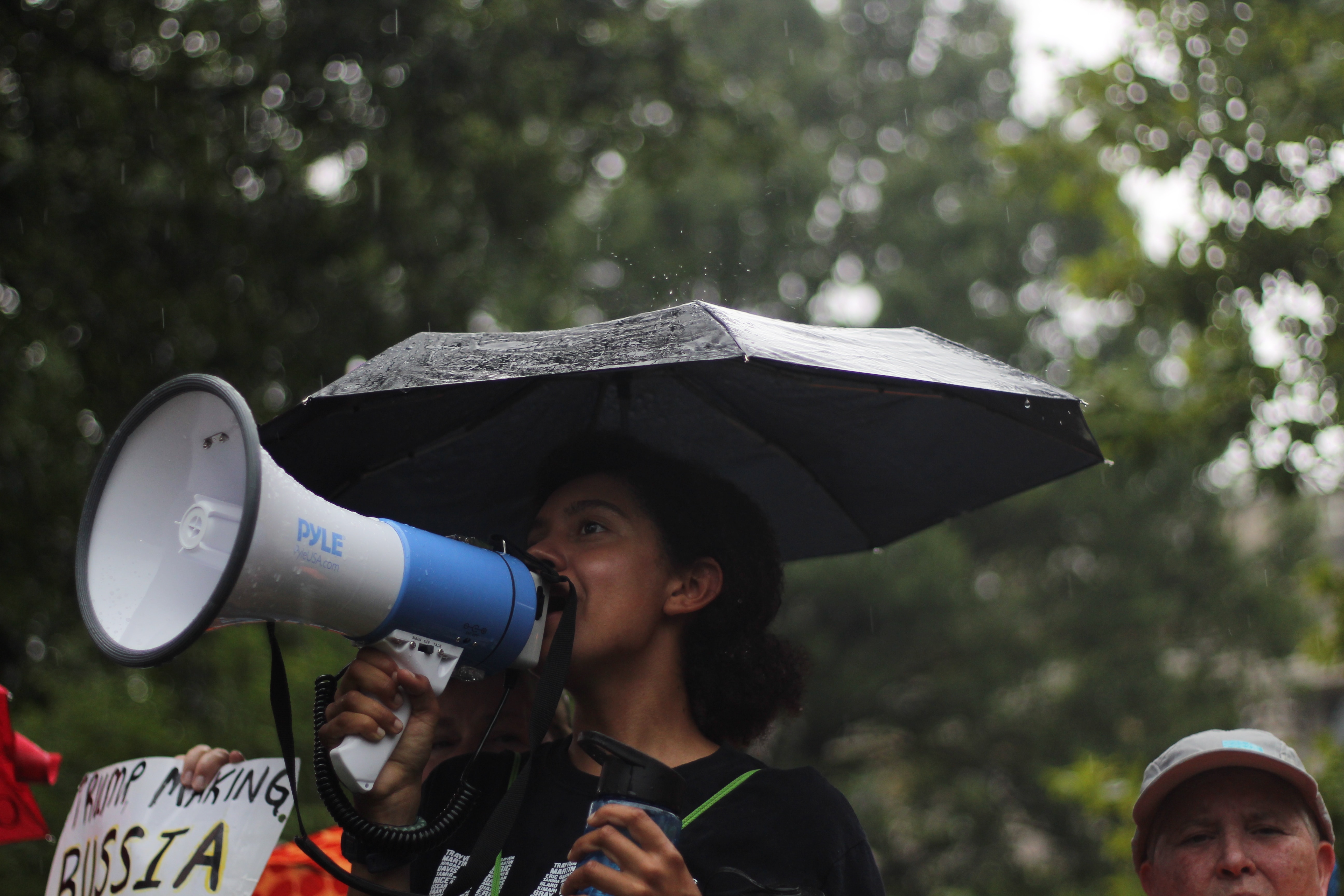* Trigger warning: This post discusses rape culture and gun violence *
“The 24-hour news cycle,” “fake news,” “news alerts”—these phrases seem to sweep through our society, inspiring op-eds, psychological studies, and political talking points.
Last year, more than half of Americans reported anxiety, fatigue, and sleep loss related to news consumption, according to the American Psychological Association, and experts say the barrage could be harming our collective mental health. The same study found that 20 percent of people describe their monitoring of the news as “almost constant.”
Bestselling author and columnist Roxane Gay responded to a reader’s experience with compassion fatigue, or feeling incapable and exhausted in the wake of infuriating headlines. At the same time, 90 percent of Americans expressed distrust in their political leaders in a poll analyzed by Forbes. Take all of this in, and a common theme emerges: People feel powerless in the face of emotionally charged and controversial current events.
But poetry marks one way to reclaim that power. This can be seen in young poets’ fervor toward political slam poetry and courage in addressing complex topics like race, gender, and other intersections. Poetry contests now create platforms for advocacy related to reproductive rights, and journals like Collective Unrest and Glass embrace the news cycle as a theme. While physically dissecting headlines serves as an activity to get kids interested in poetry, today’s most urgent poetic voices carry on the tradition in thoughtful, trailblazing ways.
Poetry on immigration
Salvadoran poet Javier Zamora, who immigrated to the United States 20 years ago at the age of nine, is well-known in the poetry world for his book Unaccompanied, which traces his story of migrating alone as a child. Though Zamora said he didn’t want to write about immigration again, he felt pulled to the subject matter when he read about conditions at the border. On a recent episode of The Poetry Magazine Podcast, Zamora explained that these headlines seemed to erase the human experience of immigration.
In the aptly titled “[Immigration Headline],” Zamora takes aspects of traditional journalism and translates them to poetry. He includes an incomplete “[byline]” and the typical dateline information—“NORTHERN TRIANGLE.” Through this formatting, Zamora shows how journalistic objectivity can seem cold and uniform. Yet he also writes against this, injecting the poem with deeply personal details, narrating, “I had to climb trees, find / mollusks, made a knife to eat them raw.” He also creates a steady, poignant refrain in his own language: “Yo soy un bicho migrante.”
Poetry on gun violence
As part of Rattle’s Poets Respond series, which encapsulates poets’ timely, impassioned reactions to the headlines, Jewish poet Anna Talhami’s “On the Last Day of Passover” shows how traumatic headlines can affect daily peace. Written about the Poway synagogue shooting on the last day of Passover, the poem chronicles, “Those who had heard the news / of the latest shooting / decided not to tell those who hadn’t, / who had led their phones and clocks to rest, / letting Shabbat breathe / the way she was intended.” This reveals how “the latest shooting” becomes almost predictable in its atrocity.
But Talhami’s poem also revels in beauty and sacredness, a testament to defiantly vowing to not live in fear. She writes of a new beginning, informed by tragedy but refusing to be defined by it: “We opened / the windows of ourselves, sent the night out searching / for our collective liberation like a raven / for the end of the flood.”
Poetry on rape culture
College student and poet Audrey Lee’s “My Mother Says I Should Write About Brett Kavanaugh & I Take A Breath and Tell Her,” part of the Poets Resist series, shows how rape culture exists on both a national and extremely individual level. The line “i do not owe” echoes throughout the poem in different forms: “i do not owe him my words,” “i do not owe him my body,” “i do not owe him my touch,” “i do not owe him my time,” and — perhaps most powerfully — “i do not owe him anything.”
While the “him” most directly refers to Kavanaugh, Lee’s poem creates a parallel between Kavanaugh and an unnamed assailant, allowing “him” to stand in for the many rapists and predators who go unpunished. The direct, almost breathless explanation of why Lee doesn’t want to write about Kavanaugh draws attention to the repeated emotional labor of women and other rape survivors, as well as the retraumatization that often occurs after an assault. Like other poets, Lee uses the nuanced form of poetry to challenge linear reports of trauma, giving voice to an experience we can’t scroll past or turn off.
As a writing prompt, let these poets inspire you to take on the news, from the topics presented here to breaking updates about the environment, voting rights, wealth inequality, and more. In a fast-paced media climate where headlines can be forgotten by the next day, use poetry to linger on uncomfortable truths and make a courageous, lasting statement.




